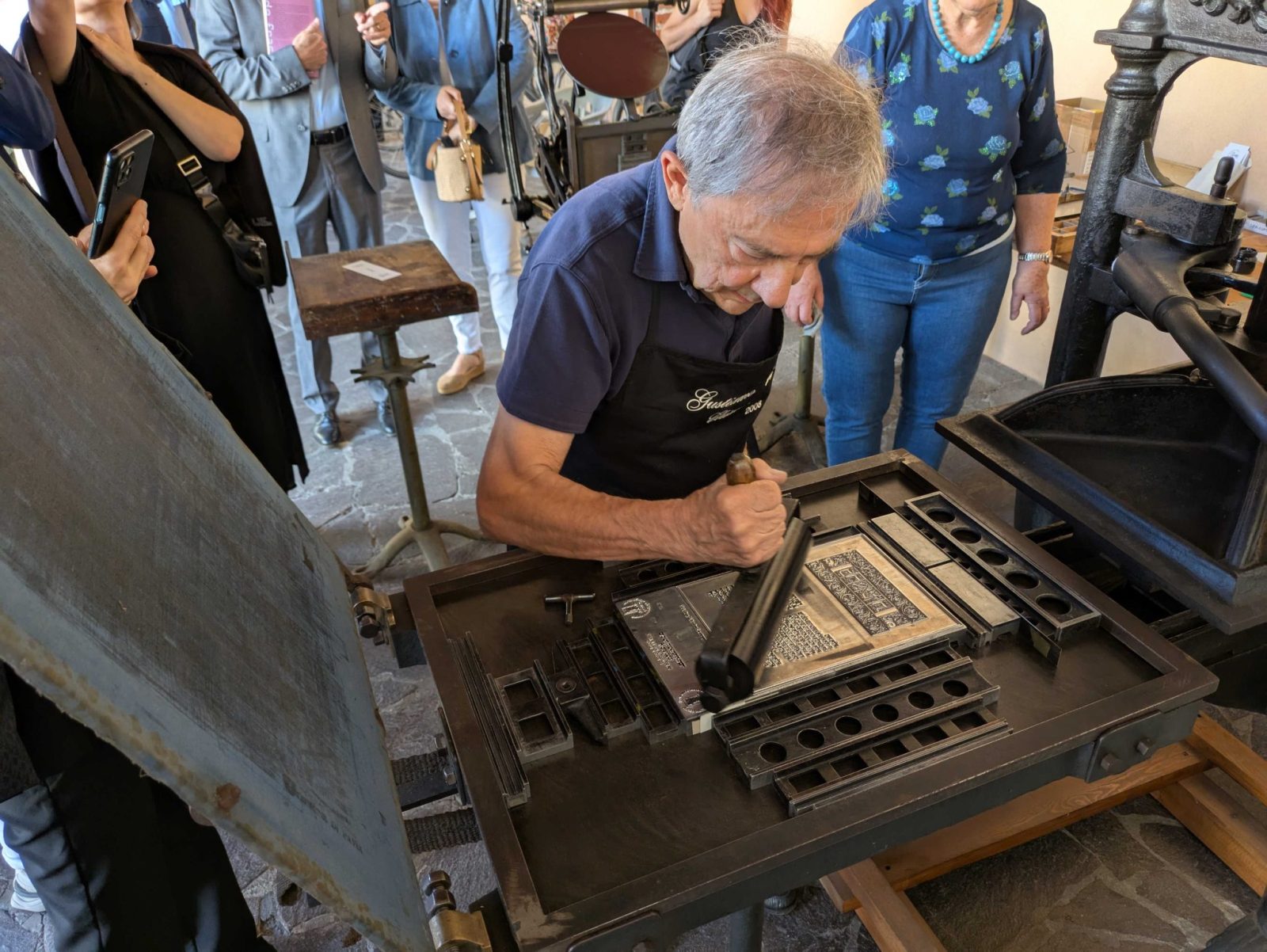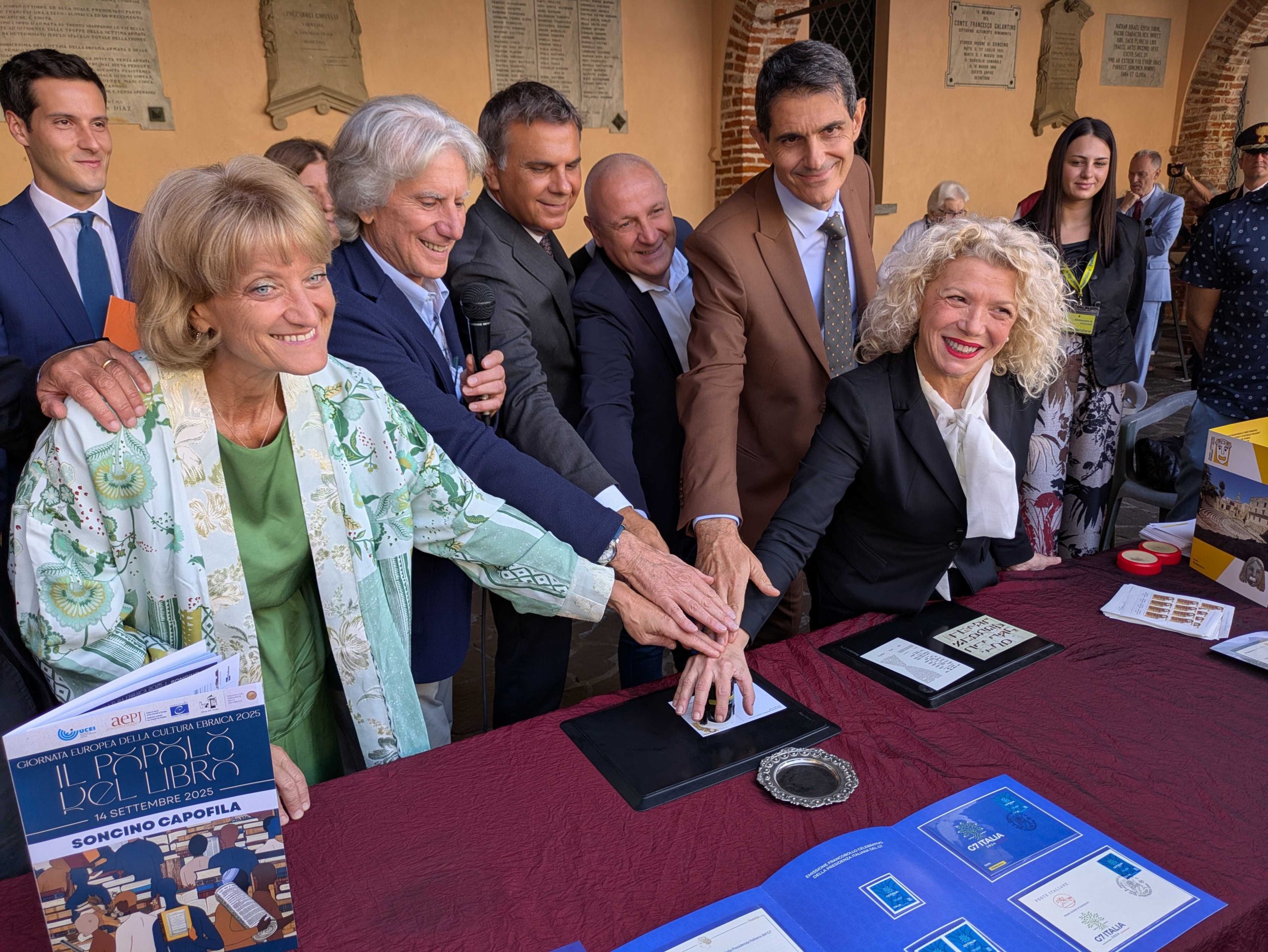JEWISH CULTURE – Soncino flagship city, Di Segni (UCEI): “Let us write together a page of coexistence”

The European Day of Jewish Culture kicked off on September 14 in Soncino, a city in the Lombardy province of Cremona, Italy. In the town square in front of the town hall, an 18th-century printing press printed the first page of the first Hebrew Bible printed in 1488 in the same city. This symbolic event, which aimed to recreate the endeavor of a family of printers named Soncino, opened the 26th edition of the Day of Jewish Culture. Over a hundred Italian locations participated in the event, the theme of which was “The People of the Book.” “We are not only the Holocaust, persecution, and antisemitism. We are a centuries-old culture that is still alive today,” said Noemi Di Segni, president of the Union of Italian Jewish Communities (UCEI), in the opening ceremony (here the full speech in Italian). She reminded the public that Jewish identity was born from the biblical text: “a story of a people that becomes a code of life, rules, and universal values.” Di Segni added that “through paths of cultural coexistence, we can regain trust and lift our gaze from the past to the future.”
In her speech, the UCEI president emphasized the value of books as a means of transmitting culture and the dangers of inciting their destruction. “When Torah scrolls, the Talmud, and Jewish books are burned, as we have learned in the darkest moments of our history, the worst is yet to come. The destructive thought translates into persecution and extermination. Perhaps, by extension, even when books and Jewish authors are ‘simply’ boycotted. However, when books are printed, read, preserved through the centuries, and handed down, they inspire life, curiosity about others, and the development of thought, even critical thought.”
Gadi Schoenheit, the UCEI councilor responsible for the Day, and Mattia Peradotto, the director of the National Office Against Racial Discrimination (UNAR), also took up the message. Peradotto urged reflection on the central role of the book in Jewish tradition and “on the book as a bridge between different cultures.” For Soncino’s mayor, Gabriele Gallina, the event was an opportunity to “draw attention to one of our treasures: our Printing Museum.”
“We are very proud to be the lead city,” said Giuseppe Cavalli, the museum’s director, highlighting the value of a heritage that ties the history of printing to the Lombard town. Schoenheit noted that the stories of Jewish printers “are a symbol of Jewish history across the millennia and of the encounter between the Jewish world and local cultures.”
According to Roberto Mariani, the president of the Province of Cremona, these stories “remind us that Judaism is an integral part of our national heritage — something to be protected, promoted, and explored further.”
Regarding the relationship between printing and the biblical text, Noemi Di Segni emphasized that “We don’t own the copyright to the Bible, but we have the right to see its authenticity respected. Books mirror individual and collective identity. Writing, reading, and sharing them is a responsibility, whether they are written on parchment, printed in Soncino, or in digital format. It means knowing where we want to go.”
With the Jewish New Year approaching, Di Segni noted that the holiday is a “day of universal reckoning, when we are called to reflect on our actions and ask for forgiveness.” In the prayers, “the idea of our prayers being welcomed and written in the book of life recurs, with the pen that our Lord holds in his hand to continue writing our future and that of other peoples.”
In closing, she invited us to “write together a page of coexistence and knowledge meant not to remain empty but to generate a second and a third, setting an example in Soncino of shared writing that conveys values and transmits a wish for peace and trust in the future.”
Daniel Reichel
